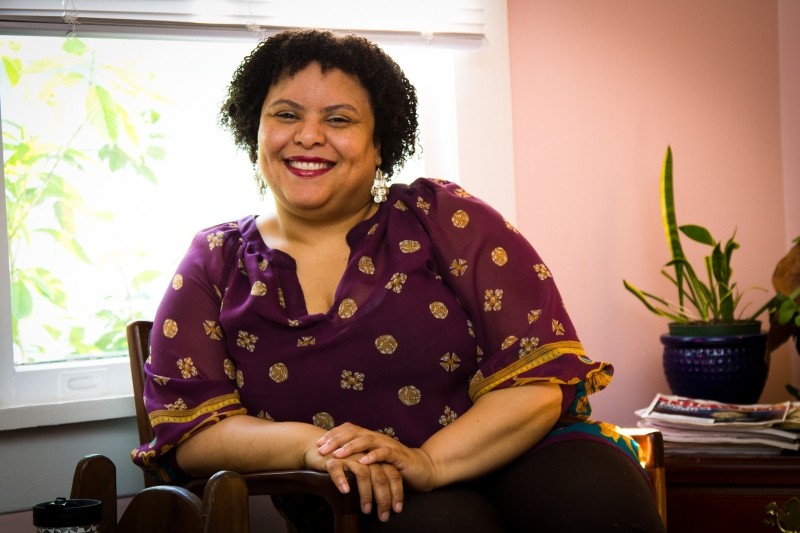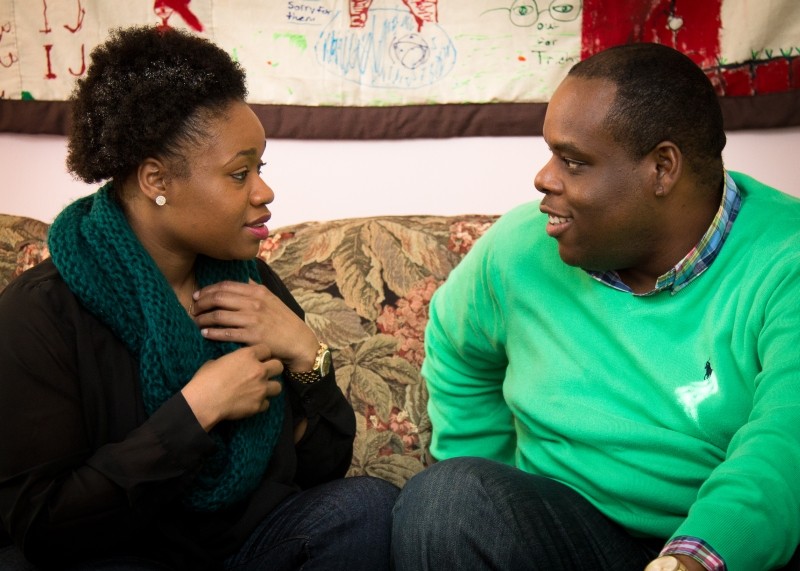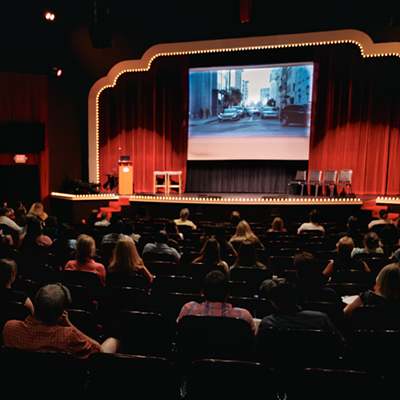
PLAYWRIGHT Marsha T. Jones makes no secret about the trauma of her childhood, not anymore.
Sexually abused by an uncle from the age of three to 16, she kept silent for decades, afraid of retribution, or worse, that no one would believe her.
“He was like a big brother to me, the person I played Hot Wheels with,” recalls Jones, shaking her head. “Telling was complicated, confusing.”
When she finally mustered the courage to tell her family and press charges against him, several members chose to testify in court in support of her abuser. He’s serving a 20-year prison sentence anyway, and she now makes up for lost time by speaking boldly about the secret she was told to keep.
“I talk about it all the time now, because I know that it might help someone else,” says the gregarious Jones, who finished her MFA at SCAD last year and is currently working towards a Masters’ in Art Administration. “That’s helped me heal a lot.”
The North Carolina native has also written an inspirational play based on her experiences called All the Beautiful Things.
“You know us playwrights, we like our irony,” she deadpans with a wink.
Yet somehow, Jones has infused the dark subject matter with light and laughter, and not the ironic kind: Premiering this weekend at SCAD’s Mondonaro Theater, All the Beautiful Things is built on genuine charm, exploring not only damage done but the restorative power of friendship and ultimately, the resilience of innocence.
“It’s meant to be uplifting, promise,” she laughs.
Set in a creek bed near the tiny town of Saxaphaw, the plays opens with 11 year-old Bit Bit’s first encounter with Man, the sweet young boy who becomes her confidante. The only other characters are a pair of porch-bound grandmothers who keep secrets of their own as they trade hilariously barbed colloquialisms (“You so old they couldn’t even make wine outta you!”)
Justifiably, the abuser doesn’t even merit a place on the stage.

While it is BitBit’s secret that drives the plot, it doesn’t define it—or her. Jones’ dialogue reveals a young girl with existential questions and a yearning to transcend her country upbringing, and the sweetness between her and Man serves as a ballast.
“Their interaction is so playful and childlike, it balances the story,” says MFA student Kammeran Giggers, in the role as BitBit.
After reading it through with Jones just once, Giggers decided to produce All the Beautiful Things as her SCAD thesis.
“The rehearsal process was difficult, it was hard sometimes just to get the words out,” she confesses. “But this is about the kids who don’t have the voice to say something.”
Fellow MFA candidate Johntia Jackson, who plays Man, heard Giggers’ run-through reading and pursued Jones for a role.
“I’m in theater because I not only want to educate and entertain but enlighten,” says Jackson. “And that’s exactly what this play does.”
Jones’s play has also found an eager partnership in the Coastal Children’s Advocacy Center, a local non-profit that provides free forensic and counseling services for children who have been victimized by sexual or severe physical abuse.
“We’ve been so impressed with Masha’s courage. Hopefully, it will inspire others to come forward,” says CCAC Executive Director Kris Rice.
And there are many, many others. Quoting statistics based on the landmark CDC Adverse Childhood Experiences (ACE) Study, Rice reminds that one in four women reports being sexually abused before the age of 18; for men the rate is one in six.
“Of those, it’s estimated that only one in ten come to the attention of the system,” says Rice.
Such underreporting is often because abusers are family members, as in the case of Jones.
“It’s such a complicated process for a child to report a loved one,” sympathizes Melissa Dotterweich, clinical coordinator at CCAC. “You’re mad, but you still love them.”
(On a related note, HB 17, aka The Hidden Predator Act, sailed through the Georgia Assembly last week, extending the statute of limitations on childhood sexual abuse and providing opportunity for victims to file civil suits.)
Once abuse has been reported to the appropriate authorities, CCAC cushions its young clients from repeated interviews by DFACs and helps prepare them to testify in court. Dotterweich begins by inviting the children to CCAC’s playroom, stocked with dolls and toys and a tiny pink house with green shutters.
In this safe, joyful atmosphere where they receive a book and snuggly toy of their own in the first few minutes, these small victims learn to tell their stories.
“What I think people overlook most is the resilience in kids,” muses Dotterweich, adding that those attending All the Beautiful Things are encouraged to bring donations of young adult books and stuffed animals to add to CCAC gifts.
“They told about the abuse, they wanted it to stop, and it did. So they move on to a new day.”
Although she still suffers from the residual effects of a difficult childhood, for Jones, seeing her secret performed onstage has finally brought her to that new day.
“This is the first play I’ve written for me, for a purpose,” she says, her eyes tearing.
“Watching these actors find the vulnerabilities has been incredible.”



























